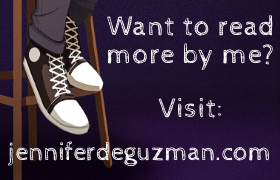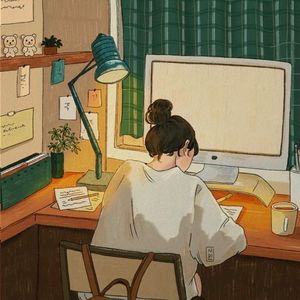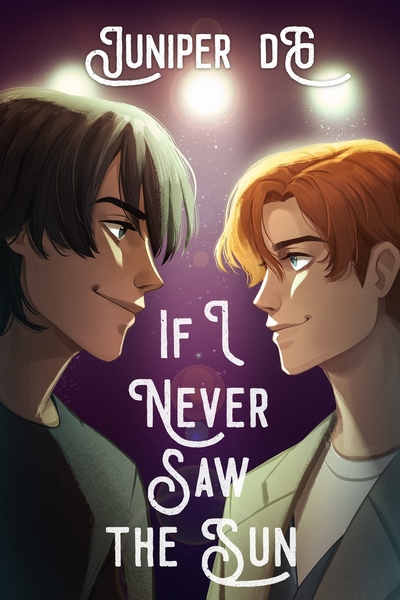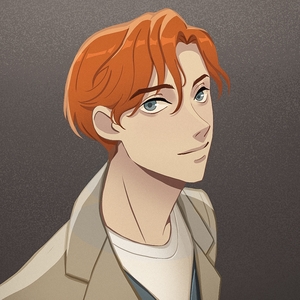CHAPTER ONE
THE MILTON FITZFOXES
March 1980
Bard
“Isambard Flaherty Fox—such a name, and the scion of nothing at all.”
It was raining, as it always rained in Milton—in gobs of unhesitant fat drops, spattering the roofs and street, blown slantwise by the wind, swathing the city in gray. The young man at the window, knowing nothing else—his birth, his childhood, his youth all in Milton, his secret sorrows and joys tucked in its backstreets, its suburban gardens, suffused in the rust on gates and black from smoke clinging to brick and the scaly lichen on stone—proclaimed himself to the weather outside. He threw out his arms and took an exaggerated, dramatic bow. He would perform for Milton, he would be its voice, only it didn’t know yet.
Then he quickly moved to shut the window as the wind picked up the papers on his desk and began to shuffle them to the floor. Worthless scribbling, his father once said, a waste of paper. But his father didn’t know the true value of paper—paper printed with words already written, blank paper with the promise of words yet to be written. The only paper his father cared about was worthless: money—pound notes and cheques with an excess of zeroes.
There was a pounding on the door of his tiny bedroom, and Bard quickly straightened. He pushed back the ginger hair that had flopped over his forehead as he turned toward the door.
“Oy, Bard!”
Cassandra. He cracked open the door and she was peering back, with the same green-flecked-with-gray-and-gold eyes as his, her nose crinkled, and her mouth twisted in annoyance.
“The General has seen fit to grace us with his presence this morning, just when it’s most inconvenient,” she said. “Get your arse downstairs before he bombs the moors or something.”
“The General” was Roger Fox, their father—General Manager of Palmer Manufacturing, the largest employer in Milton. Its factory was the source of the smoke that darkened the already-always-gloomy sky.
Bard pushed back his hair again—one could never be too careful with Roger Fox—tucked in his shirt, and took off his glasses. His father told him they made him look like a “bloody swot,” disdained the boy with the book in his hands, the boy who gazed out windows, seemingly doing nothing.
“Such is the lot of bastards, eh?” he said to Cassandra as he stepped out of his room. “Always at the beck and call of the whims of their illustrious sire.”
“Speak for yourself,” she said. “Call yourself a bastard, but I’m Miss Fitzfox, if you please.”
She nudged him hard on the shoulder as she jockeyed for space on the narrow staircase. He momentarily gripped the bannister with both hands, stopping on the step, his eyes closed.
“Oh—Bardie, I’m sorry. I forgot how the stairs bring it back to you.”
Cassandra put her hand on his back, between his shoulder blades. Bard conquered the moment, then, turning, blew a raspberry and stomped down the stairs past her, his footsteps deadened by the rust-colored shag carpet. His mother, Bridget, looking wan and stressed in her government-job skirt and blouse, stood near the wall on the landing. She held her hands clutched in front of her, a faun-colored overcoat draped over her arm. Bard leaned down over her, kissing her cheek.
“Good morning, my lady mother,” he said, grinning.
“Go on with you,” Bridget said, good-naturedly giving her son a gentle chuck on the arm. “Greet your father. He has something for you.”
Roger Fox seemed to materialize out of the sitting room, gliding into view. His hair—brown, not blatantly, shamefully Irishly ginger like his children’s—was slicked back severely, and he wore a double-breasted suit that did little to hide the round paunch of his belly. There he was, with the same expectations his presence always demanded: He would be pleased, he would be deferred to, he would give them something and it would be an obligation, not a gift. Roger brought with him the loathing that settled in Bard’s bones and the anxiety that lurched in his stomach.
“Hello, Father,” he said, his hands in his pockets.
Roger glared until Bard took his right hand out of his pocket and held it out. Then he took his son’s hand and gave it a firm shake.
“No improvement since the last time I was here, I see,” he said, looking over Bard.
He was tall, but he was skinny, long arms he now held close to his body—no longer the same arms flung wide behind his bedroom door, no longer the star before his still-ignorant audience; his hair was red and fell over his his eyes; he wore jeans and a Bowie T-shirt; without his glasses his gaze was unfixed, dreamy. He was not what his father wanted. Not the son he envisioned when Bard came squalling into his view the first time, already weighed down with the heavy name of a Victorian engineer—top-hatted, cigar-smoking, heavily sideburned, a gold-chained pocket watch in his waistcoat, mud on his boots.
Bard returned his father’s gaze, forcing himself not to look away. “I live to disappoint yet another day,” he said.
Roger’s right arm twitched—muscle memory, the instinct to raise it, to strike Bard across the mouth. Shut your mouth, boy or I’ll shut it for you. The swollen lip, the taste of blood. But this time Roger merely hardened his gaze on his son with a glassy contempt, the blue of his eyes flat and passionless.
Cassandra made her way from the landing with a feigned breeziness. She manipulated what Roger saw, made sure that she appeared the perfect daughter—lovely, willowy, pink-and-white, a green ribbon that matched her eyes holding back her hair (still—ginger, but this she could not and would not change), dressed in her school uniform—the tie neatly knotted, her blouse crisp, her knee socks pristine white. Out of her father’s sight, Cassandra smoked cigarettes with boys in leather jackets and got top marks in school even though she rarely attended class. But Roger Fox didn’t know either of his children well enough to know what they did outside of the brief visits he made to the narrow, red-brick terrace house. Roger Fox didn’t exactly hide his illegitimate children; he just kept them someplace where he wouldn’t see them unless he wanted to.
Cassandra stepped between her father and brother. “Hello, Daddy,” she said, kissing him on the cheek.
Bard held back a shudder. He couldn’t imagine kissing that ruddy, blotched face. Shaking Roger’s hand disgusted him enough.
“Well, boy,” Roger said. “Do you want to know what I have for you?”
Something worthless, no doubt, Bard thought.
“Yes, sir,” he said.
Roger pulled an envelope from his breast pocket and held it out—A predatory Dickensian Benefactor, Bard thought, Raise them up and then hold them down—as he took the envelope and opened it.
It was a letter, on Palmer Manufacturing letterhead.
Dear Mr Fox: it read. We are pleased to offer you an internship in technical writing at Palmer Manufacturing.
“You’re giving me a job?” Bard asked.
“An internship,” Roger said. “Whether it becomes a job depends entirely on how seriously you take it.”













Comments (2)
See all